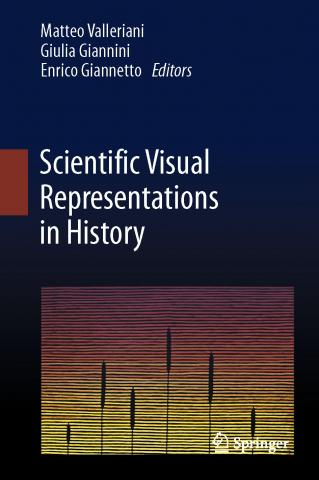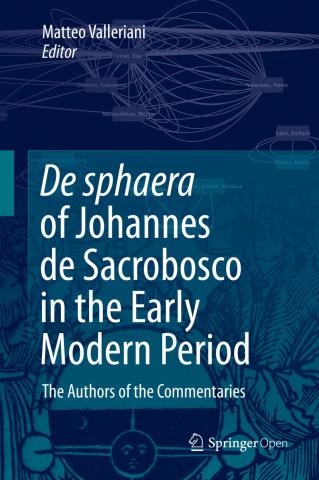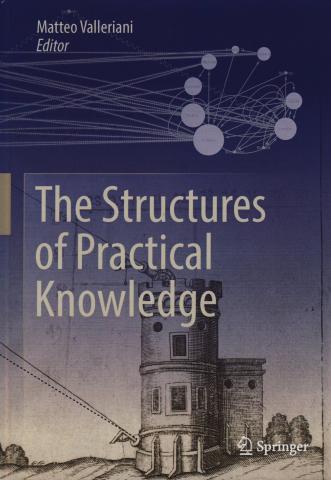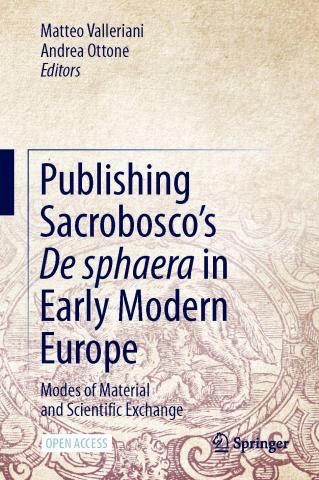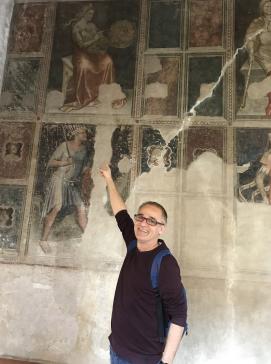
Matteo Valleriani
Principal Investigator
Dr., Honorary Professor in History of Science at the Technische Universität in Berlin, Professor for Special Appointment, The Cohn Institute for the History and Philosophy of Science and Ideas, Faculty of Humanities, Tel Aviv University, Tel Aviv, Israel
Raum 116
Matteo Valleriani is a Principal Investigator (W2) at the Max Planck Institute for the History of Science in Berlin. He is also Honorary Professor at the Technische Universität Berlin, Professor by Special Appointment at the University of Tel Aviv, and Principal Investigator at the Berlin Institute for the Foundations of Learning and Data (BIFOLD). His research focuses on the transformation of scientific, practical, and technological knowledge, with particular attention to the mechanisms of its diffusion and transmission and their entanglement with broader cultural, economic, and political contexts. His work primarily addresses the Hellenistic period, the late Middle Ages, and the early modern era.
Among his major research initiatives, he leads a group within the project "The Sphere: Knowledge System Evolution and the Shared Scientific Identity of Europe," which investigates the development of cosmological knowledge and the emergence of a shared scientific identity in Europe between the thirteenth and seventeenth centuries. Another important area of his research concerns the epistemic function of visual materials in processes of knowledge transformation.
Valleriani is also a prominent figure in the field of Digital Humanities, integrating methodologies from Complex Systems Theory with the development and application of Machine Learning models and Artificial Intelligence technologies in historical research.
Projekte
Leonardos intellektueller Kosmos in der Staatsbibliothek zu Berlin, 11. Mai bis 17. Juli 2021
Convivencia. Iberian to Global Dynamics (500–1750)
Leonardo's Intellectual Cosmos at the Staatsbibliothek zu Berlin, May 11 to July 17, 2021
Modeling Data and Analyzing Diffusion Using Early Modern Cosmological Treatises
Networks, Network Science, and Knowledge Graphs
Open Access to Publications, Sources, and Research Data
Pratolino: The History of Science in a Garden
The Emergence and Expansion of Preclassical Mechanics
Selected Publications
Valleriani, Matteo (2024). “Dalla biblioteca al database: il futuro delle fonti storiche con IA e digitale.” Agenda Digitale, December 24, 2024. https://www.agendadigitale.eu/cultura-digitale/dalla-biblioteca-al-database-il-futuro-delle-fonti…
Read More
Eberle, Oliver, Jochen Büttner, Hassan El-Hajj, Grégoire Montavon, Klaus-Robert Müller, and Matteo Valleriani (2024). “Historical Insights at Scale: A Corpus-wide Machine Learning Analysis of Early Modern Astronomic Tables.” Science Advances 10 (43,…
Read More
Valleriani, Matteo, Maryam Zamani, and Hassan El-Hajj (2024). “La dinamica di diffusione del sapere astronomico e l’agenda di ricerca come contesto della pubblicazione del De revolutionibus di Copernico (1543).” In Atti del XLIII Convegno annuale:…
Read More
El-Hajj, Hassan, Oliver Eberle, Anika Merklein, Anna Irene Siebold, Noga Shlomi, Jochen Büttner, Julius Martinetz, Klaus-Robert Müller, Grégoire Montavon, and Matteo Valleriani (2023). “Explainability and Transparency in the Realm of Digital…
Read More

